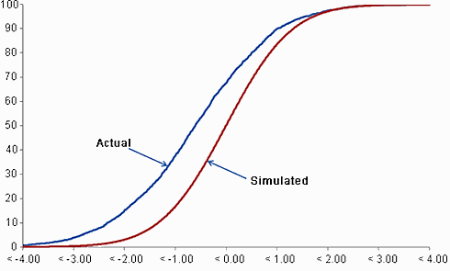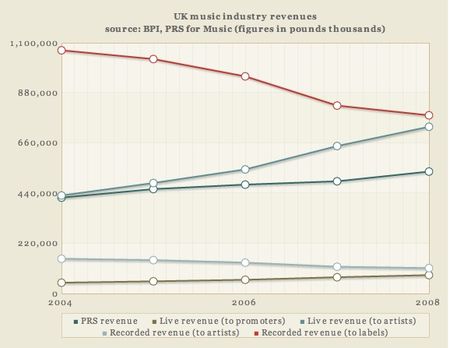Here are two fun charts.
The first shows that active management of mutual funds adds no value.

The blue line shows the actual performance of actively managed mutual funds after fees have been taken into account. The red line shows randomly distributed results. Even at the right (high performing) end of the graph, the active managers still don’t outdo chance. Put your 401k into index funds.
The second chart shows that while record labels are suffering, actual recording artists are seeing their income increase.

This maps pretty closely with what I’m seeing in the music industry. Lots of great music being made, lots of good shows out there to go to, and increasing availability of music at lower prices. The changes in the music industry are good for consumers, and it looks like they may be good for artists as well. The fact that they’re bad for record labels is a bonus.
RIP, Charlie Louvin
Emmylou Harris on the Louvin Brothers:
From the New York Times obituary for Charlie Louvin. I strongly recommend Louvin’s self-titled album released in 2007. His tribute to his brother Ira, who died in 1965, is particularly moving.